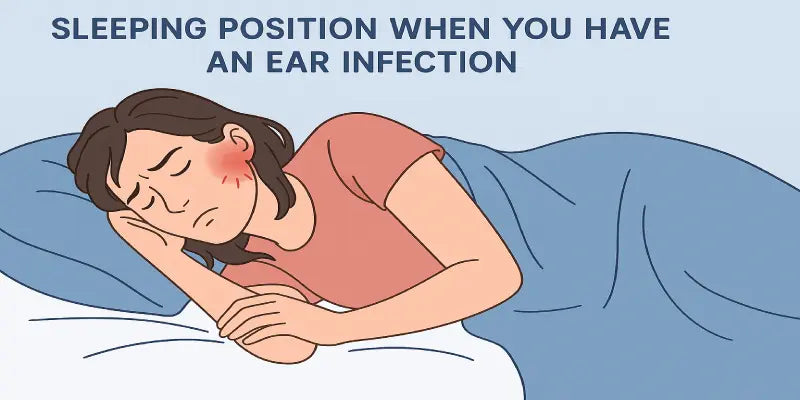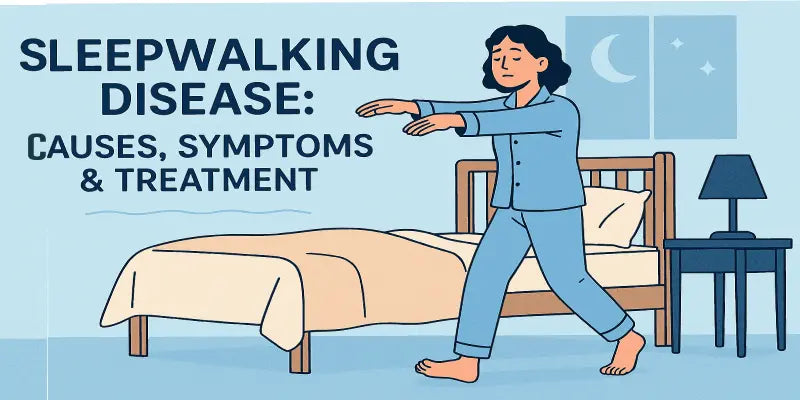
Late Night Sleep Side Effects
It is very common for people to stay up late at night finishing some work, scrolling through instagram, playing video games or watching TV. What people think is that they can work late at night and sleep in the morning to compensate for the lost sleep. This is not true. During the night, your mind and body recover from the harm produced by stress and hard labor during the day.
However, this is not exactly how you sleep during the day. Day sleep invites many health problems, and instead of feeling calm, you will experience worry, annoyance, tension, running out of time for virtually everything important, and other problems.
In this blog, we’ll explore the effects of sleeping late at night and some tips on how you can get quality sleep at night.
Effects of late night sleep
Here are some sleeping late night side effects:
Anxiety
When you don't get enough sleep at night, it gets harder to concentrate on your work throughout the day. When you wake up late, you begin to worry about the different duties and tasks that you must complete during the day, and the workload piles up if you are unable to complete them on time.
Dark Circles
Those who sleep late at night can have dark circles around the eyes. Sitting in front of a computer puts more strain on your eyes than doing so during the day. In addition to dark circles, sleeping late can cause hair and skin problems.
Morning Drowsiness
Sleeping late at night causes people to be less attentive and exhausted in the morning than those who sleep on time. An irregular sleep routine can disrupt your body's internal clock, making it difficult to wake up refreshed. Creating a fixed sleep schedule, if possible, is one of the best ways to ensure you receive adequate and high-quality sleep each night.
Weight Gain
Sleeping late leads to poor metabolism. Also, when you get up late and don't have time to eat breakfast, you always feel hungry. Night owls are known to have a strong preference for junk foods, and it goes without saying that they eat frequently throughout the day, which contributes to obesity.
High Blood Pressure
If you sleep in on weekends or go to bed at different times every night, you may have higher blood pressure. High blood pressure is a common disorder caused by the excessive push of blood against the arterial walls. It can lead to serious additional health issues, so it's critical to control yours.
Lack of concentration
Sleeping late at night can impair your concentration during the day. It is quite typical to feel dizzy during the day if you have not had enough sleep. When driving, you may lose attention, increasing the chances of accidents.
Headache
Sleeping late at night can have a negative impact on the brain, it can disturb the regulation of the brain. It can cause headaches during the day and can also cause many other health issues.
Leads to Health Issues
Not getting enough sleep at night can increase the chance of acquiring certain chronic diseases. Approximately nine out of ten people who have persistent sleep deprivation also have additional chronic health issues that can be life-threatening. Some frequent chronic conditions connected with lack of sleep are:
- Heart illness.
- Heart failure.
- An irregular heartbeat
- High Blood Pressure
- Diabetes Stroke
Depression
A lack of quality sleep can have a significant impact on a person's mood. Depression and sleeplessness are frequently associated, with one causing or exacerbating the other. When we struggle to sleep at night, our minds might become swamped with unpleasant ideas, making us feel more unhappy and making it much more difficult to sleep in the future.
Proven Tips to Sleep Better at Night
- Stick to a sleep schedule: Sleep and wake up at the same time every day, even on weekends. It helps to adjust your body's internal schedule, resulting in better sleep.
- Pay attention to what you consume: Caffeine, nicotine, and alcohol should be avoided before bedtime because they can disturb your sleep cycle. To avoid discomfort, eat light meals and minimize your fluid consumption before bedtime.
- Create a calm environment: Make your bedroom conducive to sleeping by keeping it dark, quiet, and comfortable. Use soft bedding and invest in a supportive mattress and pillows.
- Limit daytime naps: Avoid time long naps during the day as it can make it difficult for you to fall asleep at m-night. Try to nap for 20-30 minutes in the first half of the day.
- Do some physical exercise: Try to do regular exercise or any physical activity. Avoid intense working just before sleeping. Doing physical activity can help you sleep better at night and promote quality sleep.
- Manage stress: Try to distress before going to bed, you can write down your thoughts or talk to a friend. But always keep the bed only to sleep, don’t do other activities in bed.
Conclusion
Staying up late at night everyday can have negative effects on your health and overall well being. Sleeping late can increase your chances of developing chronic ailments in the long run.
According to research, people who follow a regular sleep schedule have better health outcomes and live longer lives. Prioritizing your health and sleep is critical for your overall well-being.
Follow the guidelines above to maintain a healthy sleep schedule while working full-time. If you want to upgrade your pillow, the a Microfiber Pillow could be the best option. It not only supports your neck and spine, but its soft and breathable material soothes skin and encourages a better night's sleep.









